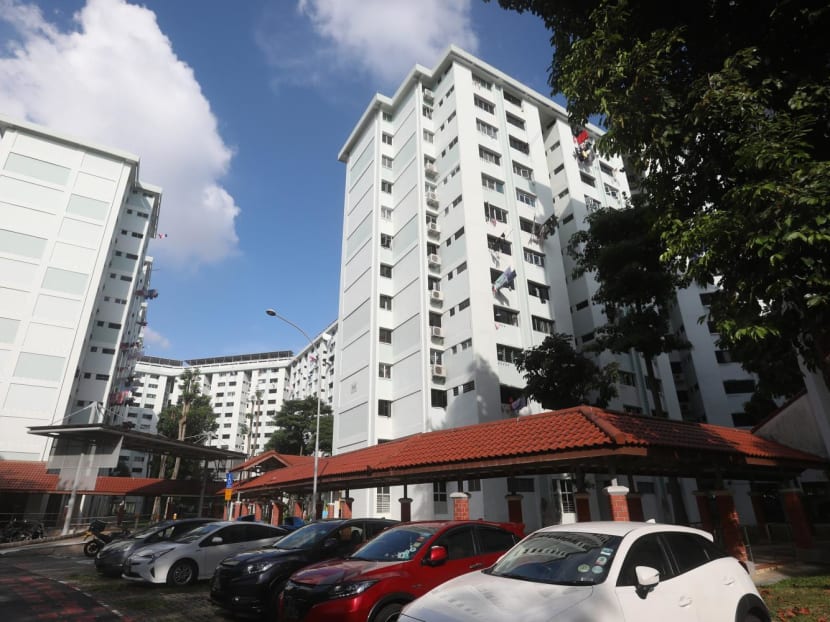MND says no need for moratorium or review of Sers, as not many more eligible sites expected
SINGAPORE — In response to a public petition, the Ministry of National Development (MND) has said that there is no need for a moratorium or further review of the Selective En Bloc Redevelopment Scheme (Sers), given that the ministry "does not expect many more sites to be eligible".

- The Ministry of National Development said there is no need for a moratorium or review of the Selective En Bloc Redevelopment Scheme
- This was in the ministry's response to the Public Petitions Committee looking into a petition related to the recent exercise of the scheme in Ang Mo Kio
- MND said most of the projects with high redevelopment potential have already been selected and it does not expect many more sites to be eligible
- The committee also asked the ministry about the timing of the 50-lease option, which was belatedly offered to the residents
- In response, MND pointed out that the option arose from the residents' feedback
SINGAPORE — In response to a public petition, the Ministry of National Development (MND) has said that there is no need for a moratorium or further review of the Selective En Bloc Redevelopment Scheme (Sers), given that the ministry "does not expect many more sites to be eligible".
"Sers is highly selective and the Housing and Development Board (HDB) estimates that only around 5 per cent of all HDB flats are suitable for Sers.
"Most of the projects with high redevelopment potential have already been selected... As such, an extensive review of Sers would be unnecessary," MND said.
The ministry had given its response to the Public Petitions Committee looking into a petition related to the recent Sers exercise comprising four HDB blocks in Ang Mo Kio.
Signed by five residents of Ang Mo Kio Avenue 3 who were affected by the recent Sers exercise, the petition had called for, among other things, a review of Sers in its entirety, including its compensation options and the ex-gratia payment to affected residents to help defray their renovation costs.
The petition also asked for a moratorium on Sers — meaning to halt the exercise of the scheme for a period of time — pending the outcome of such a review.
In a press release on Thursday (Nov 17), the committee said that it has presented its report on the petition to Parliament after getting written responses from MND over the past two months on the matter. The report was also made available to the media.
The petition was presented on Aug 1 to Parliament by Mr Leong Mun Wai, a Non-Constituency Member of Parliament (MP), who was among the members of the Public Petitions Committee.
The committee was chaired by Parliament Speaker Tan Chuan-Jin. Other members were:
- Mr Edwin Tong, Minister for Culture, Community and Youth
- Health Minister Ong Ye Kung
- Transport Minister S Iswaran
- Mr Chee Hong Tat, Senior Minister of State for Finance and Transport
- Ms Rahayu Mahzam, Senior Parliamentary Secretary for Health and Law
- Ms Hany Soh, MP for Marsiling-Yew Tee Group Representation Constituency
The petition had also asked for Sers to include a “transparent and independent evaluation of (the) reclaimed site and replacement sites, options of compensation and lease buyback scheme for senior residents”.
MND said that there is already a transparent and independent valuation of the acquired flats based on factors such as the condition of the flats as well as the extent of the renovation works.
It added that there is a wide range of options for rehousing including the purchase of a new flat at the designated replacement site, as well as for residents to apply for a subsidised flat under the Built-To-Order or Sale of Balance Flats schemes that come with a priority.
"Additional affordable options" such as the 50-year lease flats and the Lease Buyback Scheme had also been made available to the residents affected by the Ang Mo Kio Sers exercise.
TODAY previously reported that some of the affected residents were upset at having to top up money for similar-sized replacement flats.
In response to the committee's queries, MND said that this was not the first time that Sers residents had to top up for the purchase of a new flat.
"In the case of the Ang Mo Kio Sers exercise, however, a significant number of flat owners are expected to top up if they wish to buy a flat of similar size on a 99-year lease at the replacement site, because the remaining lease of their acquired flats is only 57 years as at the time of the Sers announcement, which is almost half that of a fresh 99-year lease when they move out in 2027," it added.
"Assuming the Sers residents opt for a new replacement flat of similar size, they would be exchanging an older flat with only 57 years left to run with a new flat on a full 99 years of leasehold and this is reflected in the differential in value."
MND reiterated that whether or not top-ups are needed depend on the residents’ rehousing choice, as well as whether the selling price of the replacement flat is higher than the market value of the acquired flat, after taking into account housing subsidies and extra grants.
“This approach has been consistently applied since the inception of Sers in 1995,” MND said.
TIMING OF 50-YEAR LEASE OPTION
The committee also questioned why the Ang Mo Kio Sers residents were offered the 50-year lease option about three months after they were informed of the compensation package on April 7, even though HDB knew that top-ups may be needed to buy replacement flats.
HDB is a statutory board under MND.
In response, MND said that the option arose following feedback from residents, as well as the area's MP Nadia Samdin, that many senior residents "would prefer to move into a replacement flat of the same size, but they did not need a fresh 99-year lease".
The senior residents were also concerned that they might not have enough cash to top up if they were to buy a new flat of a similar size on a 99-year lease, MND said.
The ministry added: "HDB was responsive to the residents’ feedback and concerns, and therefore offered additional options in July 2022 to better meet the needs of the flat owners, especially the seniors."
Following the presentation of the report to Parliament, Mr Tan said that MPs "who wish to pursue the matter further in Parliament could do so by asking a question or introducing a motion”.
Under the Parliamentary Standing Orders, the duty of the Public Petitions Committee is to "consider, classify and summarise a petition in a form and manner that best conveys all the necessary information in a report to Parliament", Mr Tan noted.
He added: "While current technologies give citizens opportunities to express their views directly to the Government and MPs through emails, online platforms and social media, petitions continue to be a part of the parliamentary practice in some modern Westminster Parliaments, including Singapore, for a citizen to make his concerns and views known to the House in a formal way."











